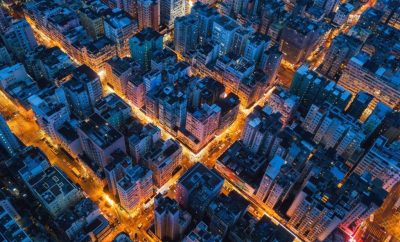
China’s road to global dominance
Later this week, Chinese President Xi Jinping will show the world how far he’s come in his 30-year plan to make his country the world’s supreme power, Axios World editor Dave Lawler writes.
- Upwards of 40 world leaders will join him in Beijing for the second international gathering on his Belt and Road Initiative, a plan to build a massive networkof ports, roads and railways across some 65 countries.
- Why it matters:When you can get that many powerful people to come to you in Beijing, you’re starting to look a lot like a superpower.
Authoritarians will take center stage (Vladimir Putin is the guest of honor).
- But liberal democracies will also be well represented: The U.K. is sending a delegation led by Chancellor Philip Hammond, the country’s top finance minister, in a move that is likely to rankle Washington.
- The U.S. attendedXi’s first conference, in 2017, but isn’t sending a high-level delegate this year.
The big picture: Belt and Road is just one element of China’s plan to supplant the U.S. as the dominant global superpower within the next three decades.
- Xi has set a target datefor China to cement its dominance: 2049, the centennial of the founding of the People’s Republic of China.
- By the time Beijing’s ambitions were widely understood in Washington, China’s success had already begun to feel inevitable.
Jonathan Ward, author of “China’s Vision of Victory,” says Xi has simply “taken off the mask” of a decades-long plan.
- Ward says Belt and Roadis intended to impose the “coercive force of the Chinese economy to build strategic beachheads” around the world: “In the 19th century we’d understand that as empire building.”
- Meanwhile, “it’s full steam ahead on pretty much every human activity, from space to seabed, with the objective of becoming the world’s leader in all of these things.”
- “And with that, you build a foundation of power that is absolutely beyond what can be achieved by any other nation.”
Chris Johnson, a former top CIA China analyst who is now at the Center for Strategic and International Studies, says Belt and Road is a series of pricey bets that might prove unsustainable.
- Johnson says the U.S.should be paying more attention to the race for the technologies of the future: 5G networks, artificial intelligence, quantum computing.
- “The risk is that we’re busychasing Belt and Road, concerns over influence building and an ideological death struggle, when this is really where we should be placing our limited resources,” he says.
The bottom line: The U.S. remains the world’s leading economic, military and technological power. But with Beijing’s investments, massive market and willingness to work with democrats and dictators, when Xi calls, much of the world is willing to come.
Πηγή: axios.com




